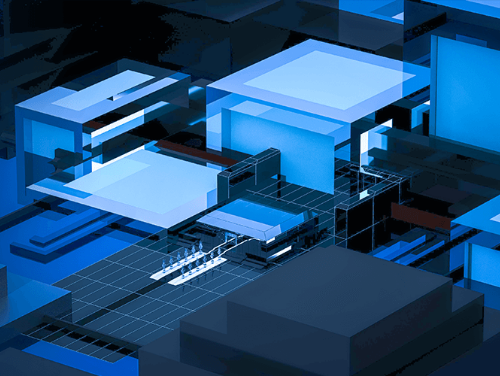Recently, three group standards, including the "Guidelines for Security Assessment of Facial Recognition Applications", jointly developed by Minivision Technology (Jiangsu) Co., Ltd., were officially released. The two standards, "General Capability Requirements for Artificial Intelligence Development Platforms - Part 1: Functional Requirements" and "Information Content Recognition Technology - Part 3: Index Requirements and Evaluation Methods for Content Detection Service Systems Based on Video Recognition", will be officially implemented in November.
With the acceleration of digital transformation, the application of facial recognition technology in daily life is becoming increasingly widespread. What comes with it is how to ensure the rationality and security of facial recognition technology application, balance the relationship between technology application and protecting personal privacy and maintaining public safety.
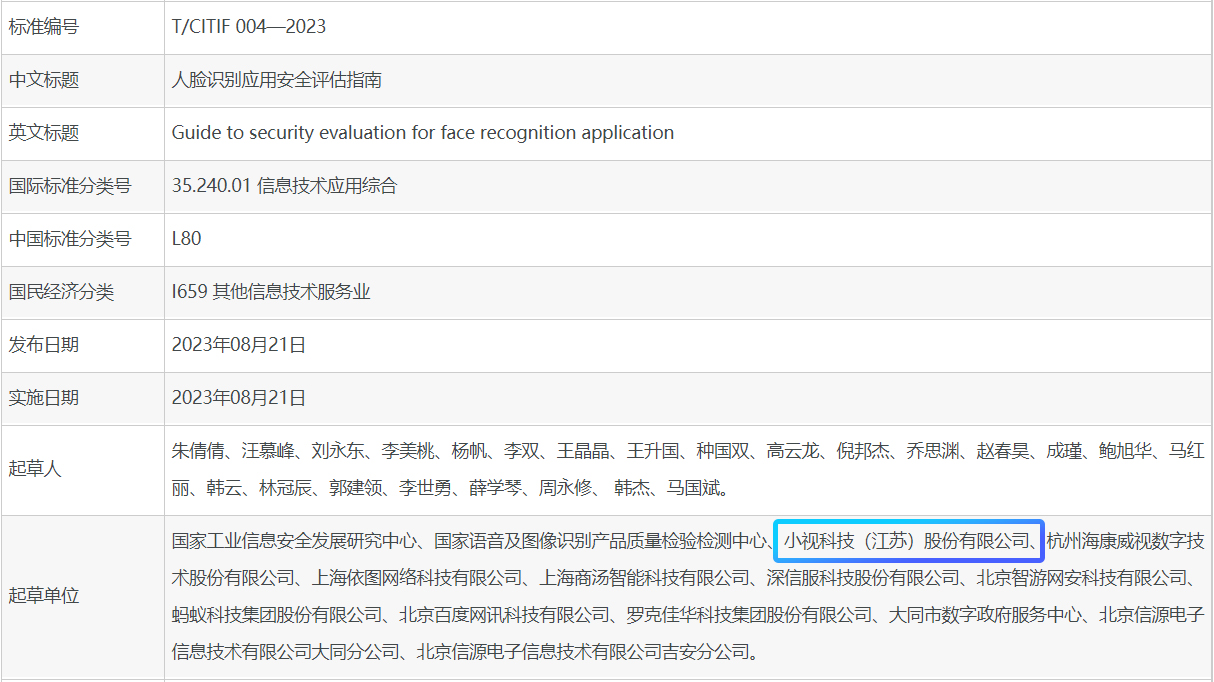
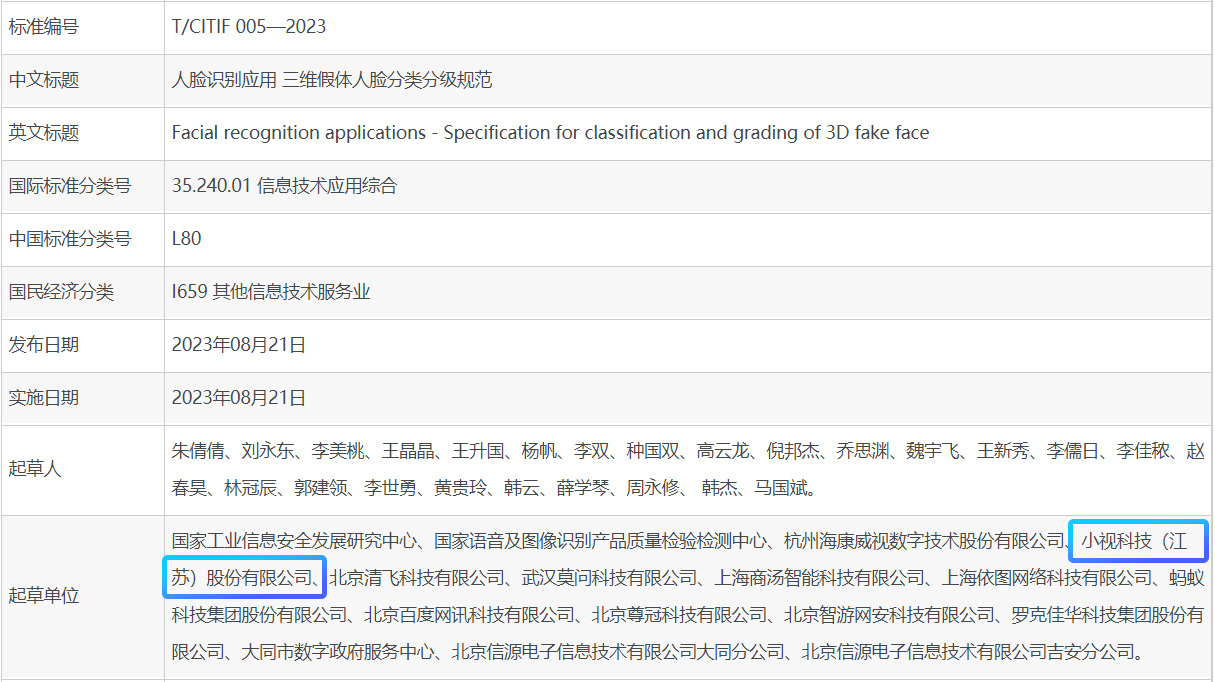
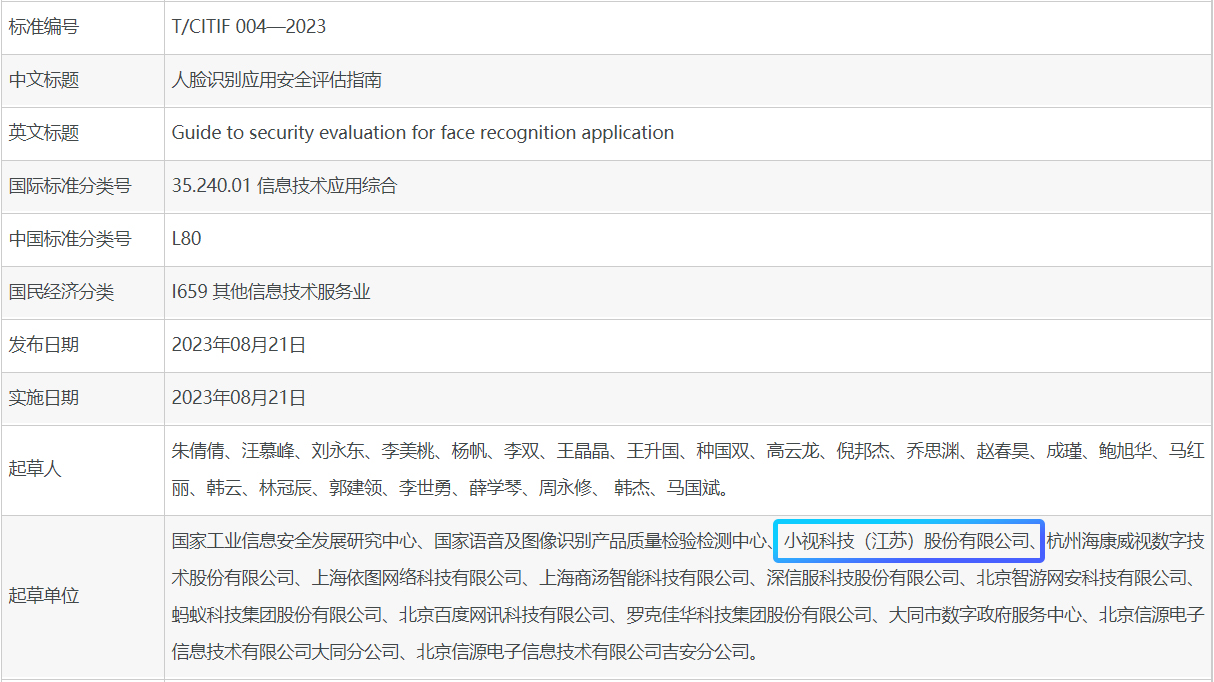
The "Guidelines for Security Assessment of Facial Recognition Applications", "Classification and Grading Standards for 3D Prosthesis in Facial Recognition Applications", and "Technical Specifications for Preventing Injection Attacks in Remote Facial Recognition Systems" were jointly developed by the National Industrial Information Security Development Research Center and more than 20 enterprise units in the industry, aiming to prevent security risks in facial recognition applications and promote deep integration and secure development of artificial intelligence and the real economy.
Among them, the "Guidelines for Security Assessment of Facial Recognition Applications" provide recommendations on the aspects of application unit, personnel security, data security, system security, and service security when evaluating the security of facial recognition applications. The "Classification and Grading Specification for 3D Prosthetic Face in Face Recognition Applications" addresses the issue of facial attacks, clarifies the classification and grading requirements for 3D prosthetic faces, effectively standardizes the testing of facial recognition systems against 3D prosthetic face attacks, and improves the system's ability to resist presentation attacks. The "Technical Requirements and Testing Methods for Anti Injection Attack in Remote Face Recognition Systems" clarifies the technical requirements and testing methods for anti injection attacks, improving the security level of the system's anti injection attack technology.
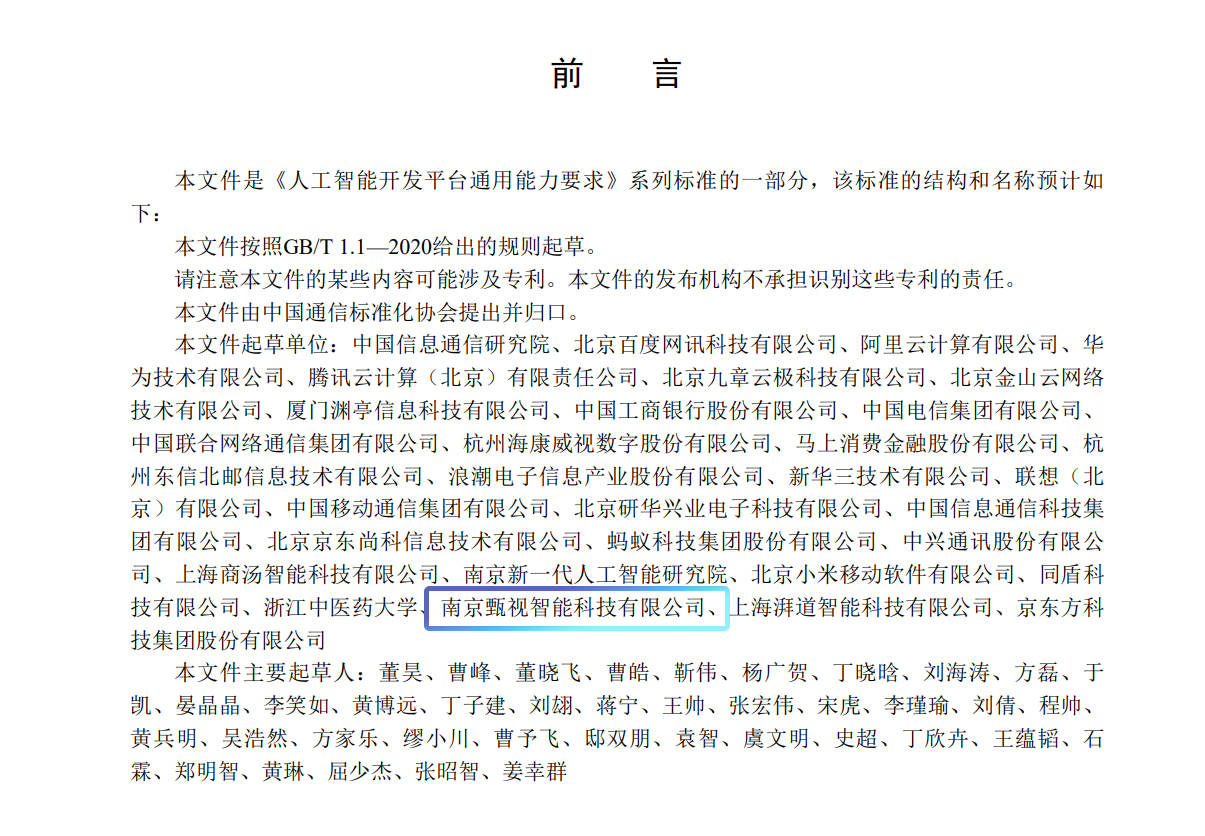
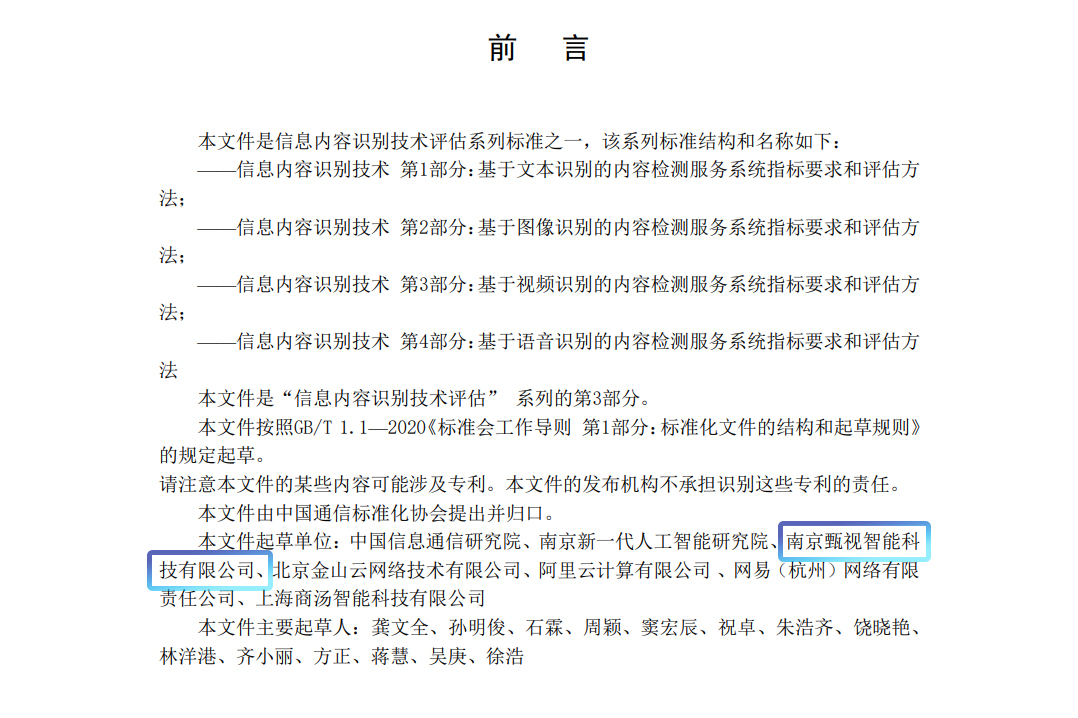
As a digital base for the new infrastructure of artificial intelligence, the artificial intelligence development platform still needs to be improved and standardized in terms of functional comprehensiveness, performance stability, and standard consistency. The China Institute of Information and Communication Technology is taking the lead in developing standard specifications. The "General Capability Requirements for Artificial Intelligence Development Platforms - Part 1: Functional Requirements" specifies the functional requirements for core links such as data processing, model construction, model deployment, support and services, providing evaluation reference standards for developers and model selectors.
Regarding the issue of content security governance and protection, the China Academy of Information and Communications has proposed the "Information Content Recognition Technology Part 3: Index Requirements and Evaluation Methods for Content Detection Service Systems Based on Video Recognition". This document specifies the basic information, system maturity, service quality indicators, and evaluation methods for material review and technical testing of content detection service systems based on video recognition. It will play a normative and guiding role in guiding the healthy development of content recognition technology and promoting content security governance.
The "Implementation Plan for the New Industry Standardization Pilot Project (2023-2035)" jointly released by the Ministry of Industry and Information Technology, the Ministry of Science and Technology, the National Energy Administration, and the National Standards Commission points out the direction for the standardization work of emerging industries. It will continue to improve the construction of the industry standard system, forward-looking layout of future industry standard research, and fully play the guiding role of standards in the industry. Minivision Technology has participated in multiple standard formulation work and will continue to promote the formulation and application of standards in the field of artificial intelligence based on its own experience in the future, contributing to the standardized development of the industry.


